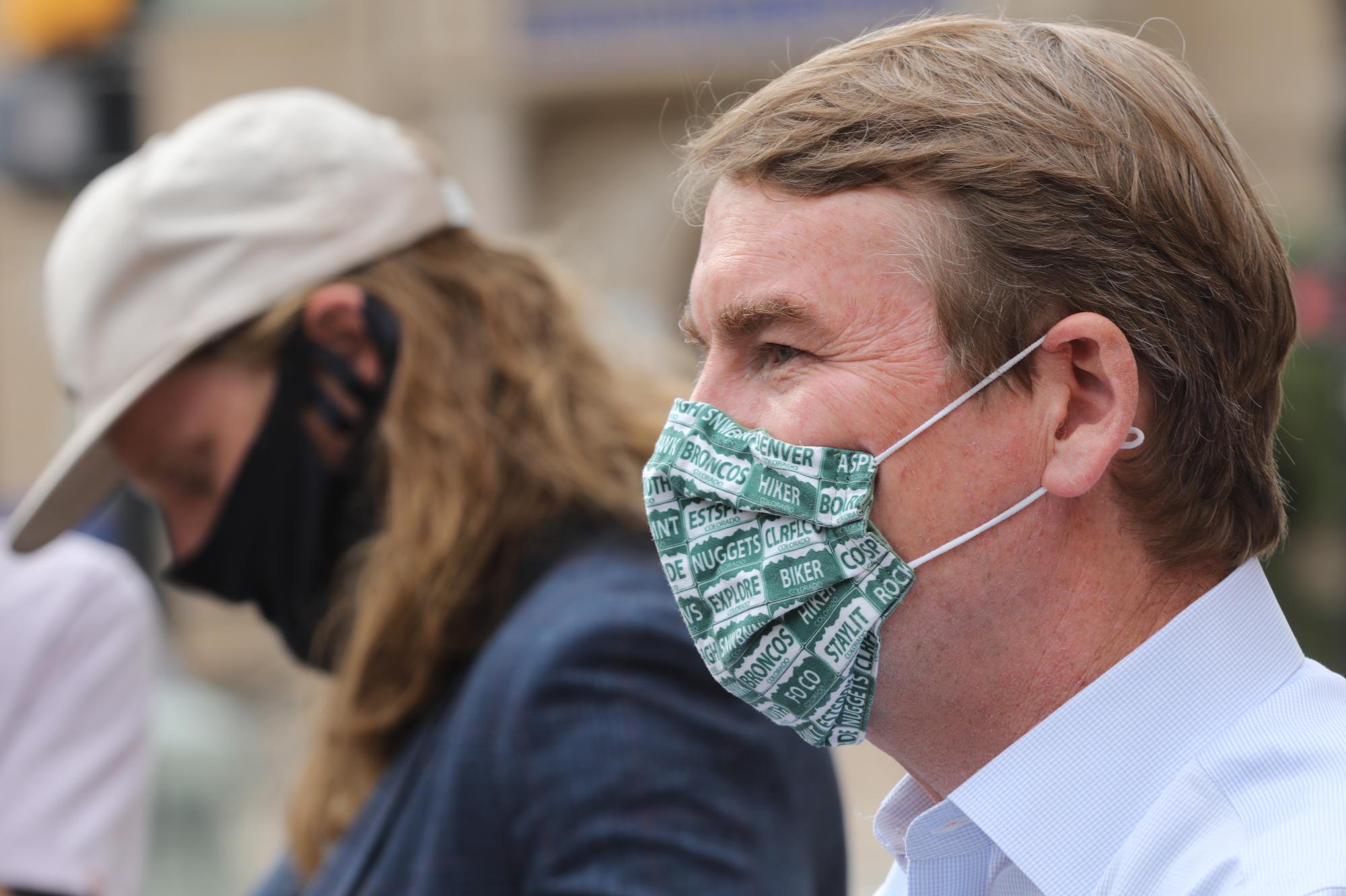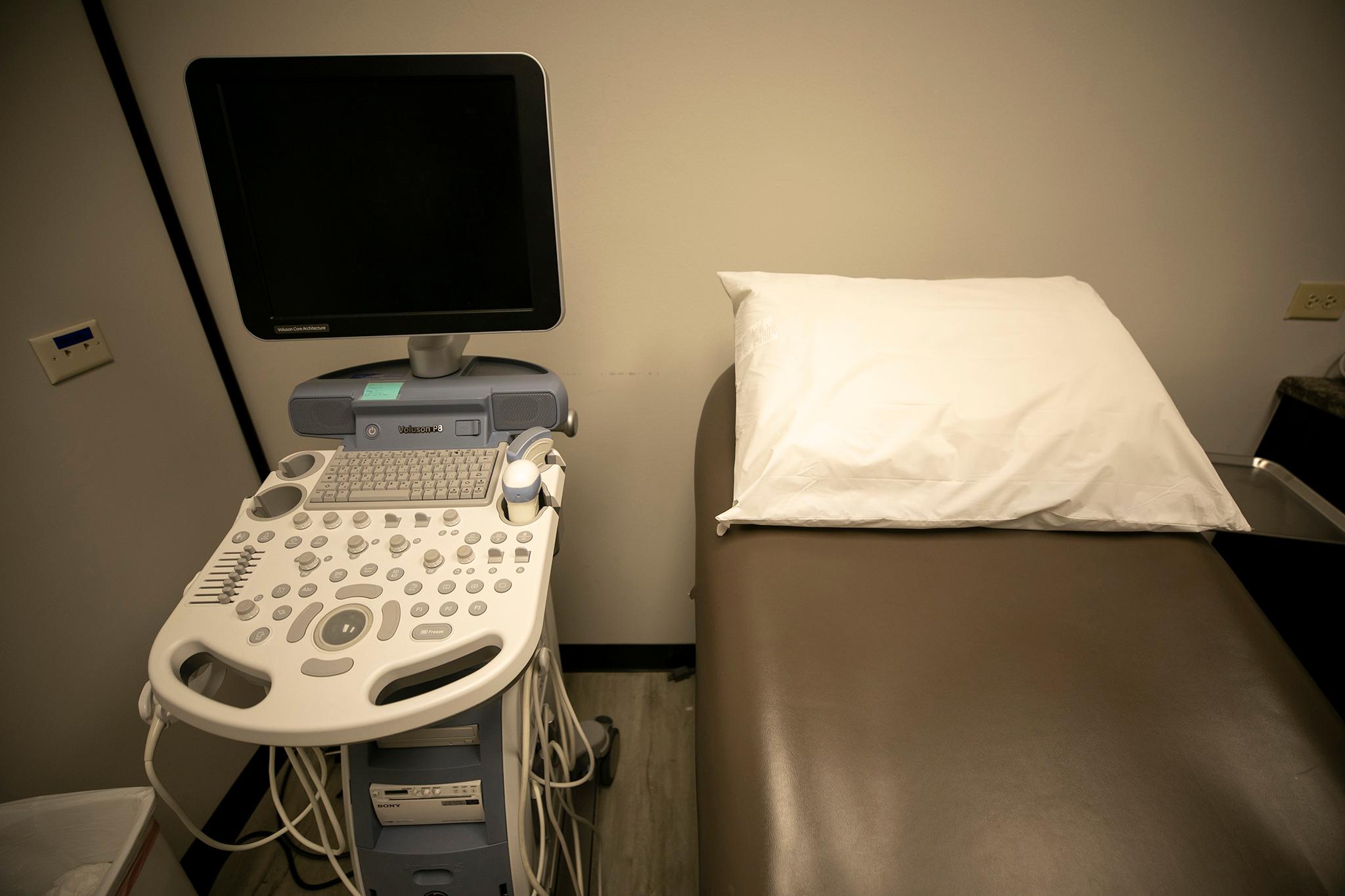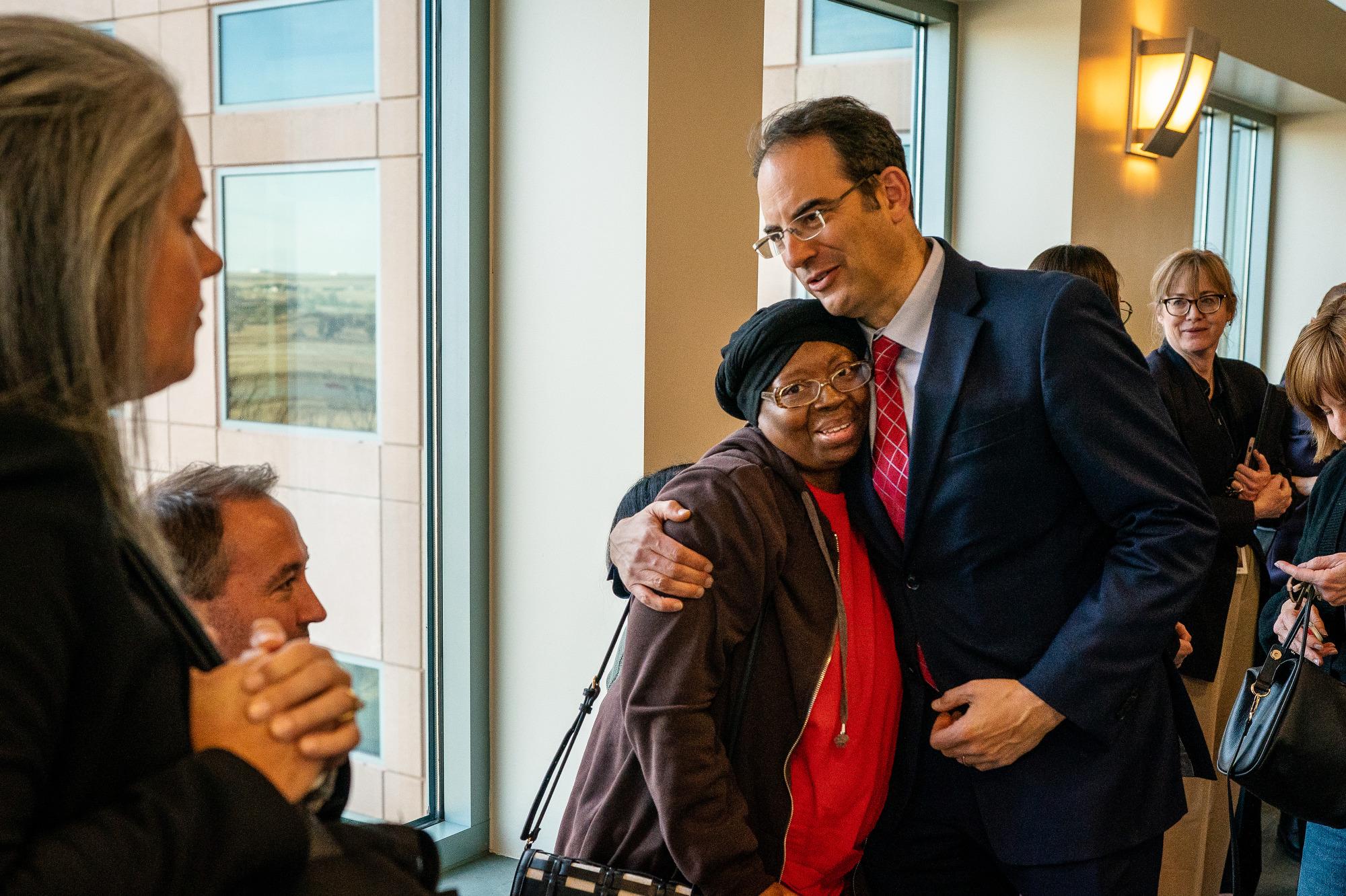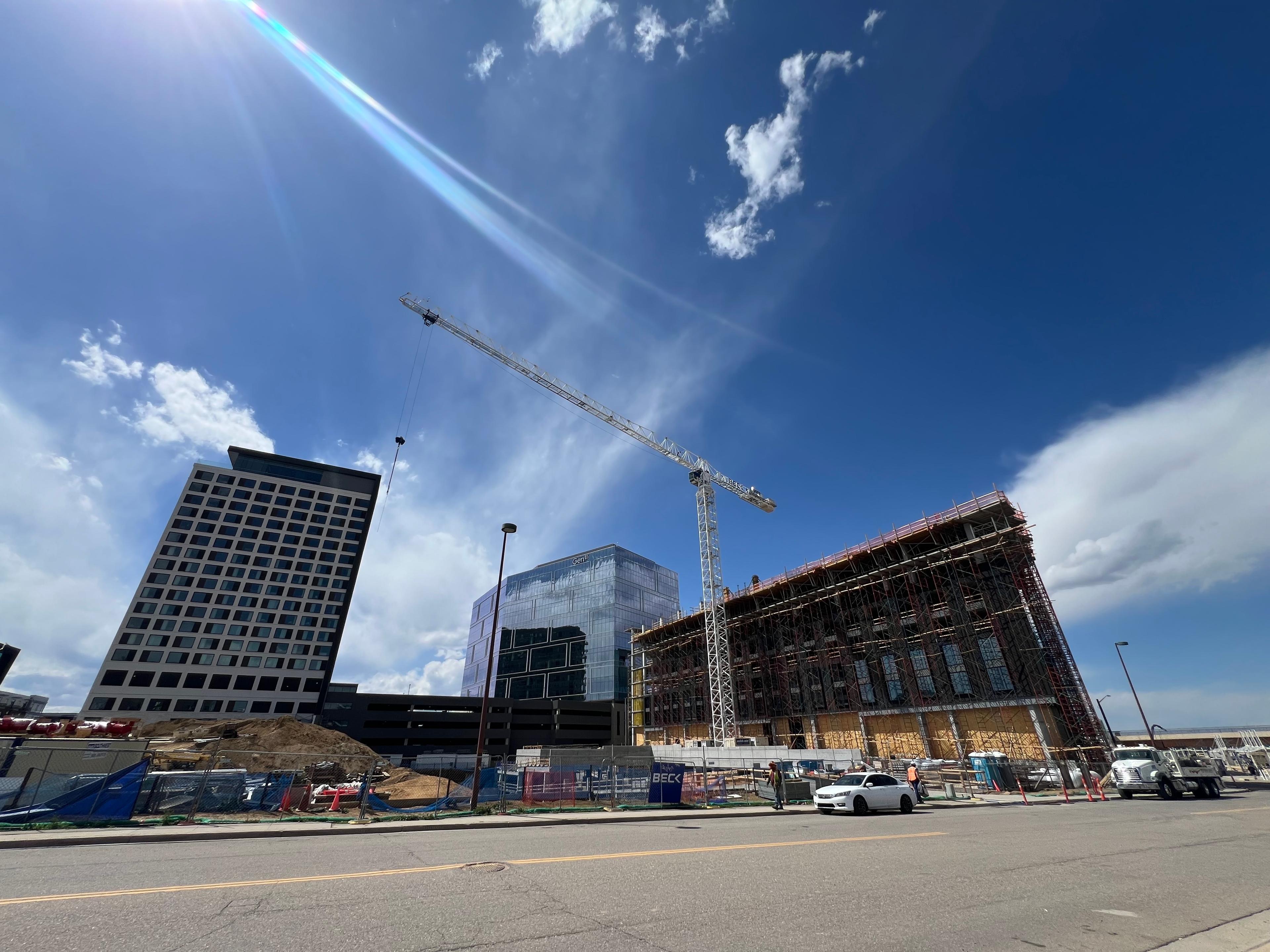
With the country experiencing a surge in COVID-19 cases and many of the federal government’s relief measures set to expire at the end of the year, pressure is mounting on Congress to pass another aid package before they leave for the holidays.
A bipartisan emergency covid relief framework — totaling $908 billion — unveiled by a moderate group of House members and Senators on Tuesday, has helped to jumpstart the process of possibly, maybe, finally getting a deal.
Colorado Democratic Sen. Michael Bennet said he would vote for the package, even though it doesn’t contain all his priorities.
“I hope we can do better than that, but I definitely would support it,” Bennet said. “I think this won’t be the last moment when we’re trying to figure out... for example, how to support our public health workers in the field.”
As talks restart, lawmakers are jockeying to get their ideas included — or at least stake a claim in any future coronavirus relief or stimulus package that might go forward during the early days of a Biden administration.
The President-elect embraced the bipartisan proposal unveiled this week, calling it a first step. While not the answer to all of the economic woes brought on by the pandemic, Biden said, “it would be the immediate help for a lot of things.”
Colorado Lawmakers push specific proposals
Bennet would like to see his RESTART Act included in this package to help businesses in the longer term. He and Republican Sen. Todd Young introduced the idea, which has strong bipartisan support. Bennet has also been working with Sen. Kirsten Gillibrand to push for funding for a “Health Force,” which could aid in contact tracing and vaccination.
Democratic Rep. Joe Neguse and Oregon Sen. Ron Wyden are trying to round up support to have wildfire recovery funds included in the next package. Both Colorado and Oregon experienced devastating wildfire seasons this year.
Neguse said that mountain communities that have been fighting the public health and economic impacts of the coronavirus also have to cope with the aftermath of the fires. The two are calling for a number of provisions, including support for a conservation corps, additional state and local aid so firefighters and other first responders remain on the job, and strong investment in federal fire response efforts.
House Speaker Nancy Pelosi and Senate Minority Leader Chuck Schumer said the bipartisan proposal should be a starting point for negotiations. Pelosi met with Senate Majority Leader Mitch McConnell Thursday to discuss coronavirus relief and an omnibus government funding measure. (Current government funding runs through December 11.)
“I think we're both interested in getting an outcome, both on the omnibus and on a coronavirus package,” McConnell said. The GOP leader also met with moderates in his caucus, who laid out their newly unveiled proposal.
The bipartisan proposal includes something McConnell has been calling for: a liability shield. The one in the proposal is a short-term federal protection for businesses from coronavirus-related lawsuits. It’s aim is to buy time for states to develop their own policies.
It also includes one of the major sticking points between the parties: additional state and local aid.
The bipartisan framework includes $160 billion in state and local aid. New York Rep. Tom Reed said they’re trying to hash out a formula so that everyone is “equitably” taken care of “especially those that didn’t receive” any of the state and local aid from the CARES Act. Sen. Joe Manchin of West Virginia said Tuesday that, while the funds would go through states, there would be separate pots of money carved out for local governments to ensure they get their share of the funds.
Some Colorado counties were left unhappy with how the state handled aid money from the CARES Act; Gov. Jared Polis only sent them about half the funds they asked for.
Many Colorado lawmakers have also been vocal on the need for additional state and local funding. “We need significant support for state and local governments and schools who are on the front lines of this pandemic,” Democratic Rep. Ed Perlmutter said. “And we need to pair that with strong support for individuals through direct payments and unemployment extensions.”
Some optimism, but agreement is still far off
The bipartisan framework also revives the extra federal unemployment benefit, but at the lower number of $300 a week, directs $288 billion for the small business Paycheck Protection Program, and also contains money for hospitals, housing, vaccine development and distribution, coronavirus testing and tracing, education, child care and more.
What it does not have — at least right now — is another round of direct payments to all Americans. Some members of Congress have been pushing for that. But providing it would then push up the overall pricetag of the bill, making it a harder sell with Republicans.
Reed, a member of the Problem Solvers Caucus, which is negotiating the proposal, was hopeful that a package could get done, and not just in the House. He said he had spoken with Colorado Sen. Cory Gardner. “This is becoming one of [Gardner’s] top priorities in the Senate as he leaves the senate to make sure this gets done,” Reed said.
Gardner’s office did not respond to a request for comment.
Reed isn’t the only lawmaker expressing optimism that a measure can get passed before the end of this Congress. Bennet said when he returned to Washington early this week he was pretty pessimistic about the possibility of coronavirus relief by the end of the year.
“By the end of the week, it became clear that [McConnell] was having to listen to people in his caucus, or maybe people in Kentucky say, ‘Times are about to get very very tough here,’” Bennet recalled. “The Senate should not go home for recess until we do our job, and that means passing a bill that gets to the president’s desk.”
Negotiations are expected to continue through the weekend. The bipartisan, bicameral lawmakers behind the proposal hope to have official legislative language by early next week.








